A week of scientific exchange - Second ERUA Research Week at the Viadrina
Five days to promote your own career and network internationally with other researchers: The European Reform University Alliance (ERUA) Research Week offered this opportunity from 16 to 20 June at the European University Viadrina. Almost six months after the first Research Week at the Viadrina, new doctoral topics were presented, discussed and many experiences exchanged.
When asked who has fancied a career in academia since childhood, almost everyone's feet stand on a large sticker N on the floor of the Collegium Polonicum. N for No. And yet everyone who has gathered in the small conference hall this afternoon is part of the academic world today.
The Research Week brings together Master's students and (post)doctoral candidates from ERUA partner universities in Lithuania, Italy, Poland and other EU countries at the Viadrina. There is an opportunity to exchange ideas and strengthen research skills - for example on the topic of Open Science. "That was the keynote of the last Research Week in November 2024," says organiser and academic staff member at the Research and Career Development Unit Sara Bonin. This is the second time she has organised the week and has made a point of continuing topics. "At this Research Week, we are therefore offering an in-depth workshop on Open Science." The current edition also offers workshops on grant writing, publishing academic papers, research data management and science communication. The aim is also to initiate new collaborations - for example for the placement of future scholarship holders as part of the DAAD-ERUA programme, for participation in existing clusters or for networking as part of new research proposals.
DAAD ERUA Research Week 2025 at the Viadrina
Keynote topic 2025 is well received by participants
This year's opening lecture was dedicated to mental health in the academic world. Sara Bonin says about the keynote by Dr Dorothea Böhme, who completed her doctorate at the Viadrina: "We already had a lot of conversations about this in November. That's why we decided to officially include the topic in the programme".
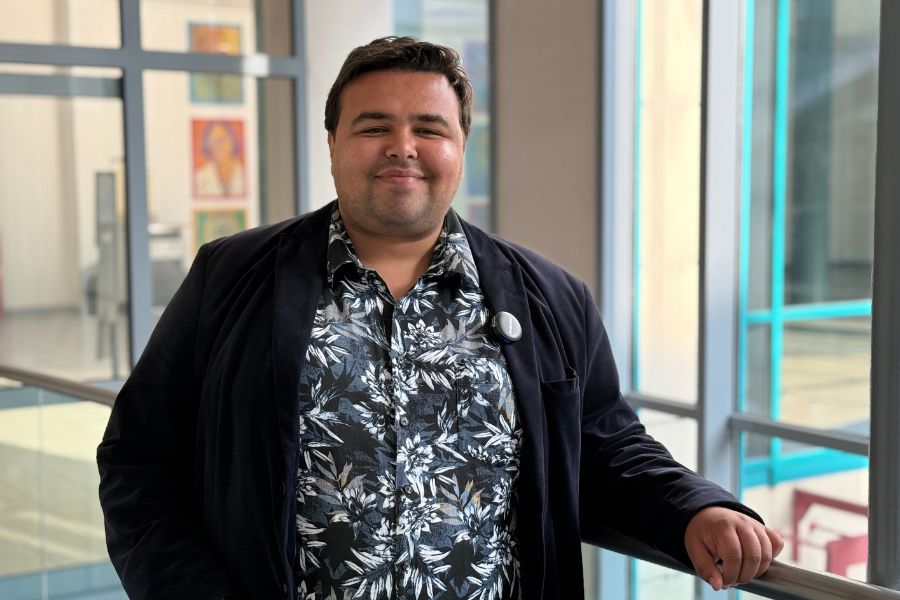 And that was a good thing, says David Schiller, one of the participants. If there's one thing he knows well, it's procrastination. "Mental stress is still one of the taboo topics in the academic world," he says. In order to be able to concentrate, he consciously takes breaks to do breathing exercises or listens to music. The doctoral student at the Faculty of Law at the Viadrina would like to complete his thesis next year, in which he examines majority voting in the European Union on security and defence policy. He came across the topic and the Viadrina as the location for his PhD when he attended the summer school "The European System of Human Rights Protection - ECHR" a few years ago.
And that was a good thing, says David Schiller, one of the participants. If there's one thing he knows well, it's procrastination. "Mental stress is still one of the taboo topics in the academic world," he says. In order to be able to concentrate, he consciously takes breaks to do breathing exercises or listens to music. The doctoral student at the Faculty of Law at the Viadrina would like to complete his thesis next year, in which he examines majority voting in the European Union on security and defence policy. He came across the topic and the Viadrina as the location for his PhD when he attended the summer school "The European System of Human Rights Protection - ECHR" a few years ago.
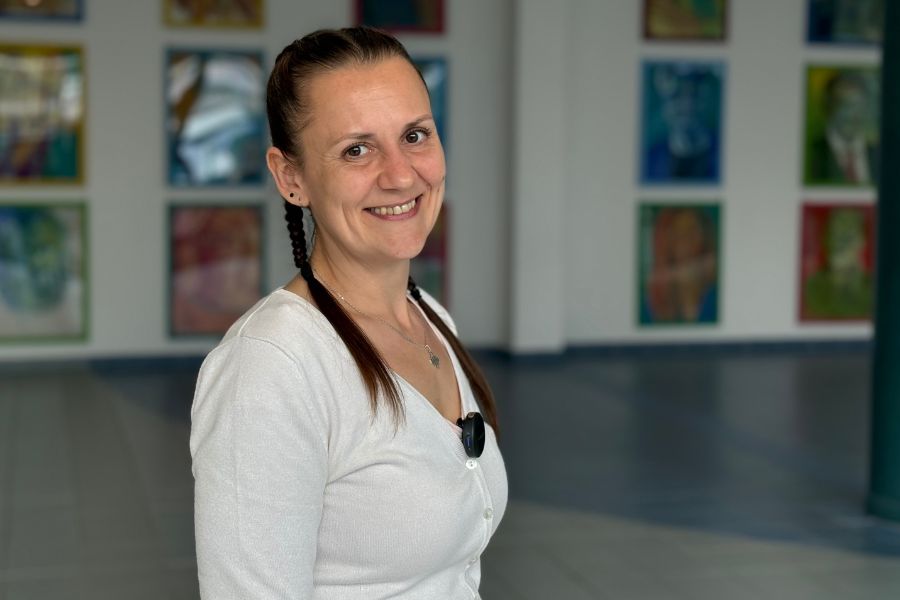 Keeping her laptop closed on Sundays is Galyna Orlova's strategy against mental load. She is currently doing her doctorate at the Viadrina Chair of Multicultural Communication at the Faculty of Social and Cultural Sciences. "It's important that I allow myself one day a week to rest, do yoga and also spend time with my partner," she says. She is well aware that the doctoral programme can be very demanding. She counters mental stress with a lot of self-discipline and has to laugh a little at the thought that this doesn't always work out. But she knows how important it is to set goals: "I've set myself the goal of finishing in two years," she says. In her work, she analyses the meaning of words in three languages - German, Ukrainian and Polish. The native Ukrainian executes interviews and tests in which the respondents' associations with certain words - such as "values", "freedom" or "loyalty" - are recorded and analysed.
Keeping her laptop closed on Sundays is Galyna Orlova's strategy against mental load. She is currently doing her doctorate at the Viadrina Chair of Multicultural Communication at the Faculty of Social and Cultural Sciences. "It's important that I allow myself one day a week to rest, do yoga and also spend time with my partner," she says. She is well aware that the doctoral programme can be very demanding. She counters mental stress with a lot of self-discipline and has to laugh a little at the thought that this doesn't always work out. But she knows how important it is to set goals: "I've set myself the goal of finishing in two years," she says. In her work, she analyses the meaning of words in three languages - German, Ukrainian and Polish. The native Ukrainian executes interviews and tests in which the respondents' associations with certain words - such as "values", "freedom" or "loyalty" - are recorded and analysed.
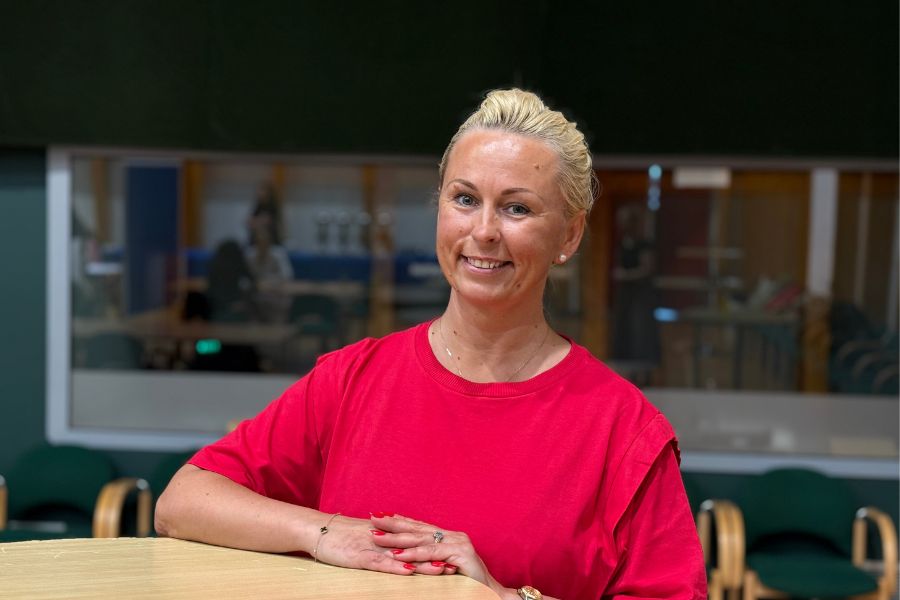 The participants of the Research Week presented their research topics at poster sessions. In the "Meet the Viadrina Researchers" format, the (post)doctoral and Master's students were able to talk to five Viadrina researchers in small groups. Viktorija Girinskienė from Mykolas Romeris University in Vilnius also took advantage of this opportunity. She decided to pursue an academic career late in life. After 20 years working in administration at the Ministry of Education in Lithuania, she wanted a change. "It's important to me to see things from a different perspective and ultimately to help initiate a process of change," she says. Her PhD focuses on the modernisation of public administration as a catalyst for social progress. Her experience in the education sector in particular helps her to analyse the data. Nevertheless, she also knows phases when things are not going so well. Then she dances or treats herself to a coffee.
The participants of the Research Week presented their research topics at poster sessions. In the "Meet the Viadrina Researchers" format, the (post)doctoral and Master's students were able to talk to five Viadrina researchers in small groups. Viktorija Girinskienė from Mykolas Romeris University in Vilnius also took advantage of this opportunity. She decided to pursue an academic career late in life. After 20 years working in administration at the Ministry of Education in Lithuania, she wanted a change. "It's important to me to see things from a different perspective and ultimately to help initiate a process of change," she says. Her PhD focuses on the modernisation of public administration as a catalyst for social progress. Her experience in the education sector in particular helps her to analyse the data. Nevertheless, she also knows phases when things are not going so well. Then she dances or treats herself to a coffee.
The ERUA Research Week is funded by a grant from the DAAD, with funds from the Federal Ministry of Education and Research (BMBF) from the European University Networks (EUN) funding programme. The DAAD ERUA project runs from the beginning of 2024 until the end of 2027.
Translated by DeepL and edited
Back to the news portal
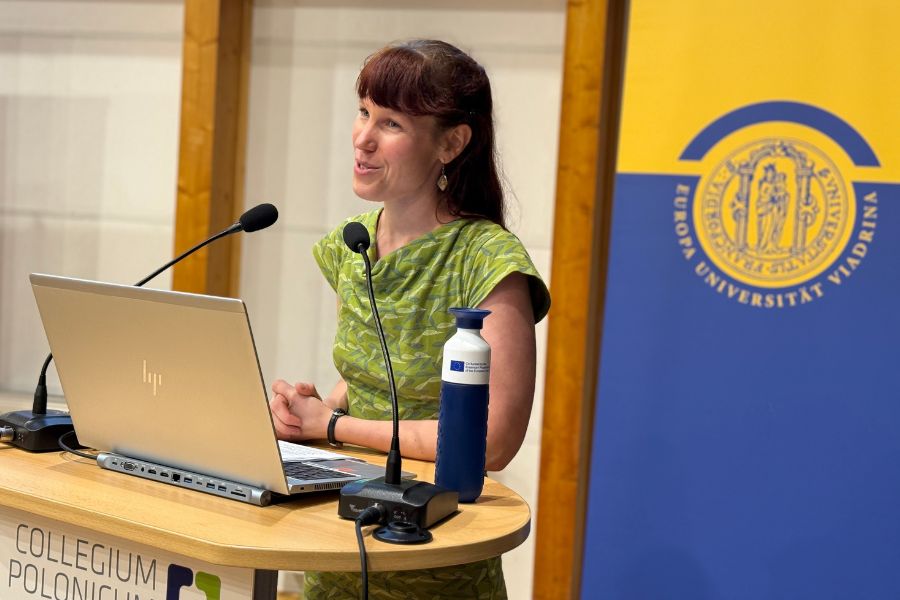
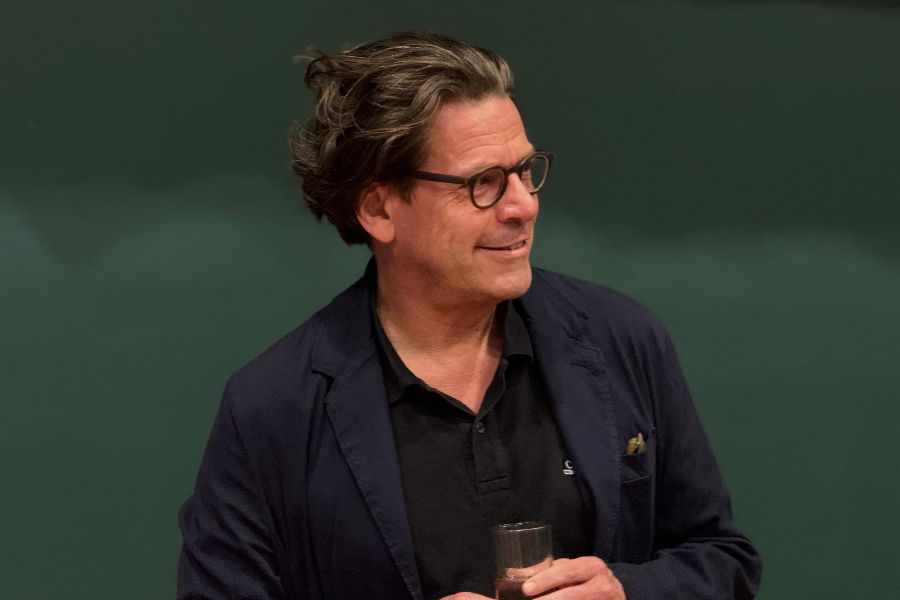
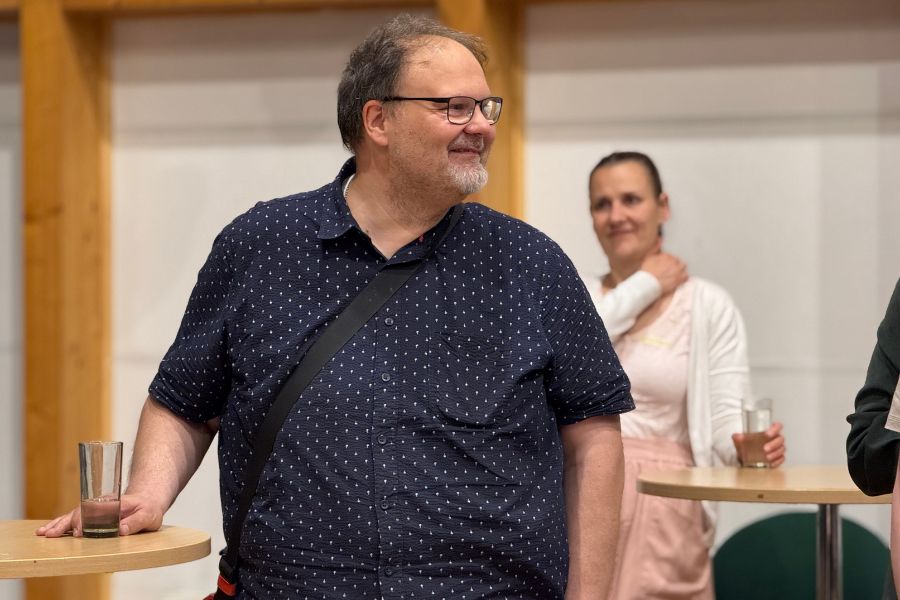
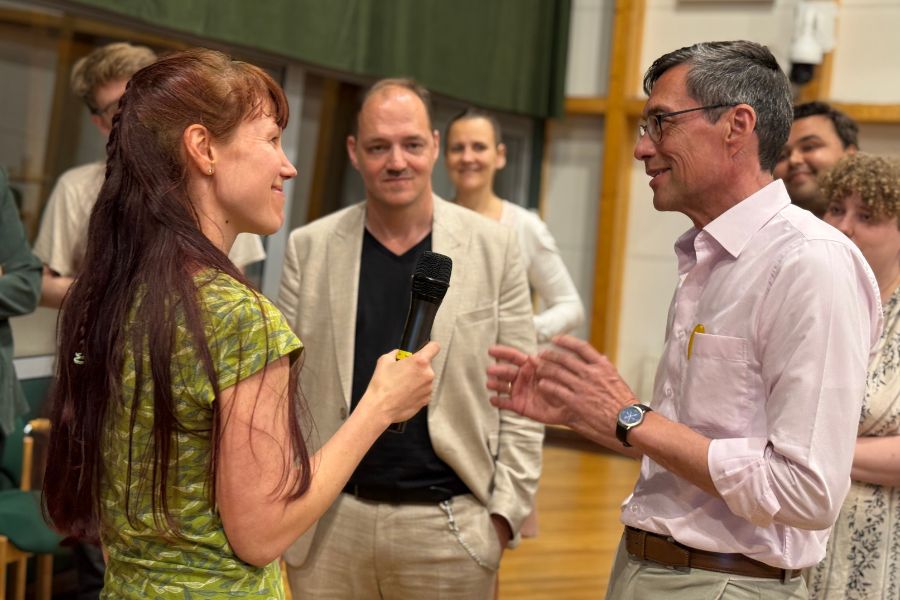
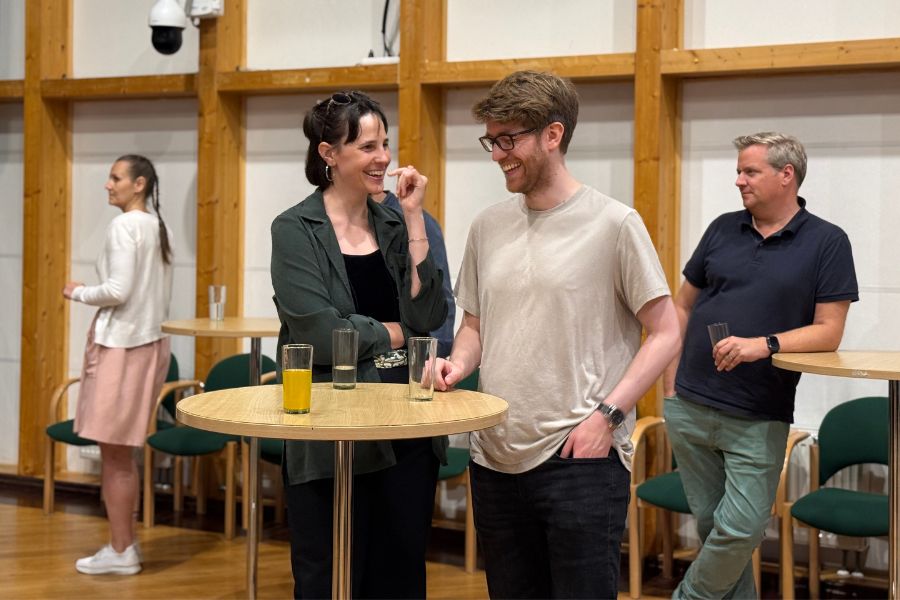
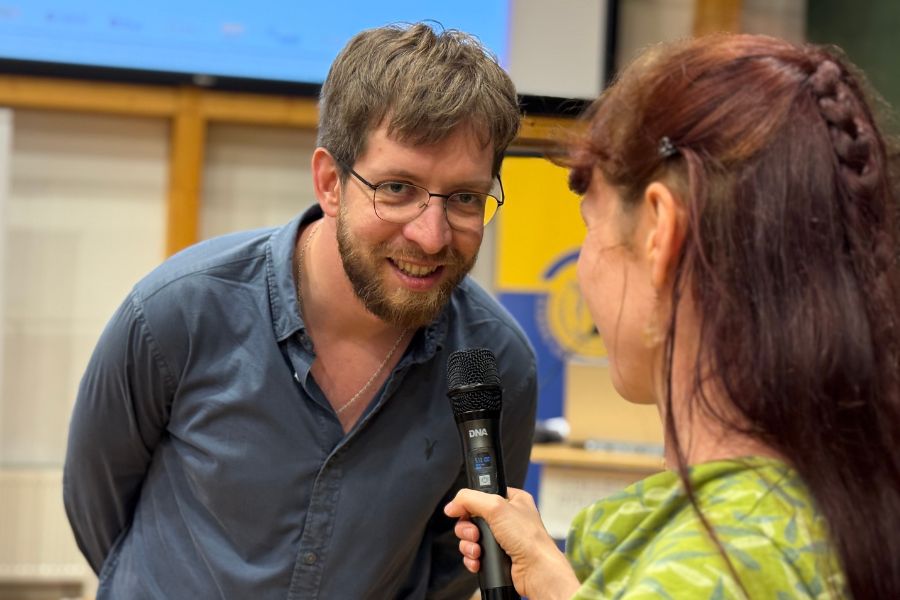
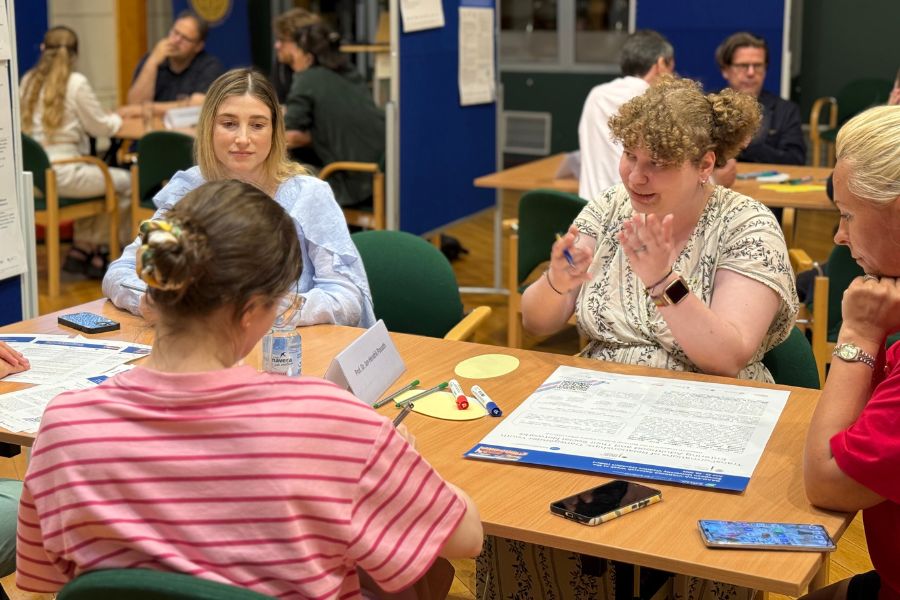
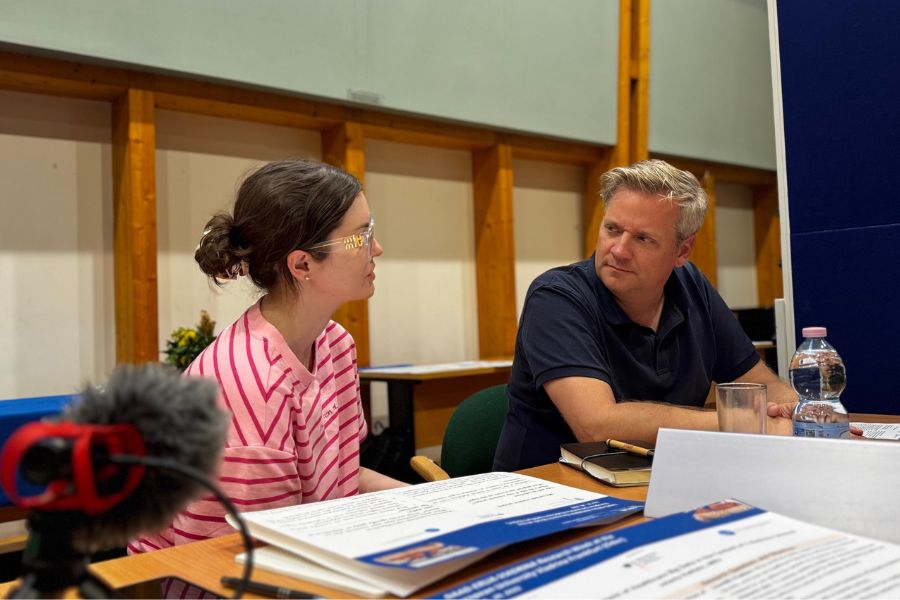
Share article: